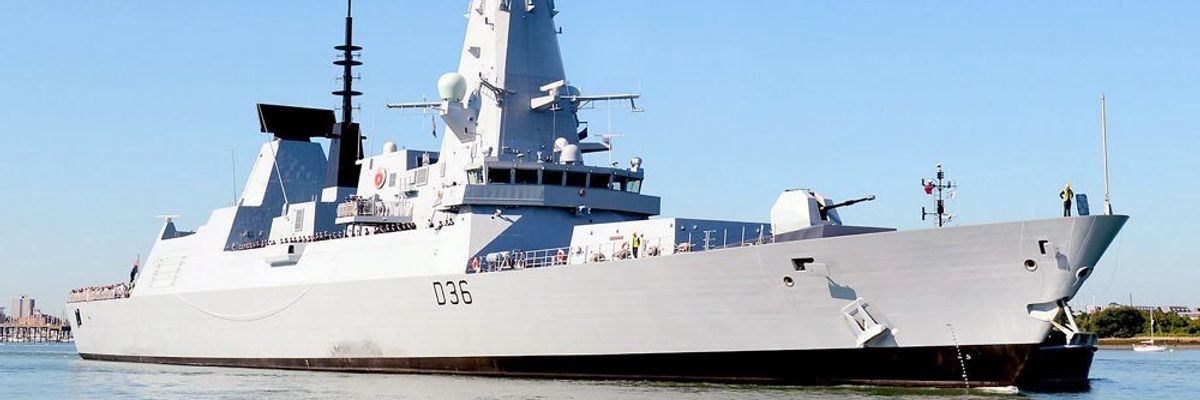“Believe me, my young friend, there is nothing —absolutely nothing — half so much worth doing as simply messing about in boats.”
— Kenneth Grahame, The Wind In The Willows
What really happened between Russian forces in Crimea and the British destroyer HMS Defender today is wholly unclear. Maybe, as the British admiralty says, the Russians were conducting live fire exercises in the vicinity and warned the British of this. Maybe, as the Russians say, they deliberately fired nearby to warn the British ship to leave what Russia claims are its territorial waters, which the British ship deliberately entered to challenge this Russian claim.
The episode does however highlight the dangers involved in using warships or warplanes to make diplomatic or legalistic points. The danger of an accidental collision is always present, and the resulting international crisis may spiral beyond anything that either side would have wished or can control.
We may remember the EP-3 incident of 2001, when a U.S. reconnaissance aircraft collided with a Chinese fighter trying to force it out of what the Chinese said was Chinese airspace. The Chinese pilot was killed and the U.S. aircraft made an emergency landing in China and the crew was detained for several weeks. That was a time when U.S.-Chinese relations were still relatively good, and both governments were willing and able to contain the dispute. If something like this happened today, the consequences would be far more dangerous.
We should also remember the hysteria in our own media and security establishments when the ships and aircraft of rival powers approach our own air space and territorial waters. In recent weeks, the U.S. media has engaged in panicky speculation about the appearance of two (two) Iranian warships in the Atlantic Ocean (apparently viewed by the journalists and analysts concerned as an American lake).
Britain routinely scrambles jets to shadow Russian planes that come anywhere near British airspace. These incidents (or rather non-incidents, since the Russian planes do not in fact enter British airspace) are then routinely fed to the British media in order to increase support for British military budgets, and the media dutifully produces headlines like “RAF jets scrambled as Russian Bombers Buzz British Airspace: Putin tests British patience.” Such irritations are pointless as well as dangerous, no matter who carries them out. This is all the more so if the intention is to send a signal that everyone knows is empty. In the case of HMS Defender’s visit to Ukraine and passage through Crimean territorial waters, the British government’s intention is twofold (apart from HM Admiralty’s perennial struggle to demonstrate that Britain’s surface fleet is actually worth the public money spent on it): first, to demonstrate British military support for Ukraine; and secondly, to demonstrate that Britain does not recognise Russia’s annexation of Crimea and the peninsula’s territorial waters.
But on the first point, it has been abundantly clear since 2014 that the United States, NATO and Britain will never in fact fight to defend Ukraine. To suggest otherwise is to engage in public deceit —and to create the possibility that Ukrainian hotheads may believe this empty suggestion, the way the Georgians did in 2008 when they attacked Russian positions in South Ossetia in the mistaken belief that the U.S. would fight to save them from Russia’s retaliation.
As to the Russian annexation of Crimea, since it has been written into Russian law (and backed by an apparently genuine majority in a local referendum), it is now irreversible without U.S. and NATO victory in war over Russia. That does not mean that the West should recognize the annexation. We can keep that up our sleeves as a bargaining chip to extract concessions in future negotiations with Russia on other issues. The Western principle of non-recognition should however be maintained through occasional low-key official statements — not through the dispatch of warships. Words hurt nobody, but when ships risk collision, bones risk being broken.
















